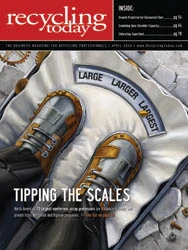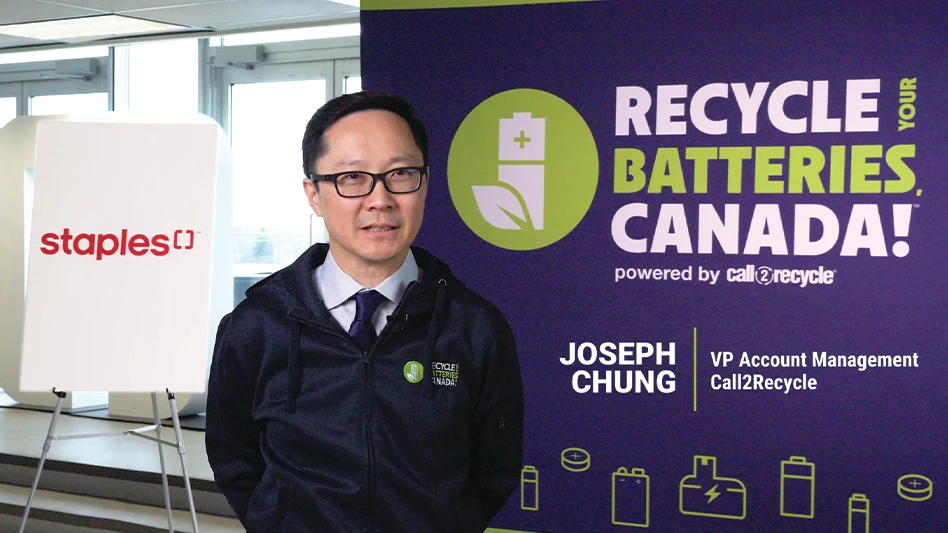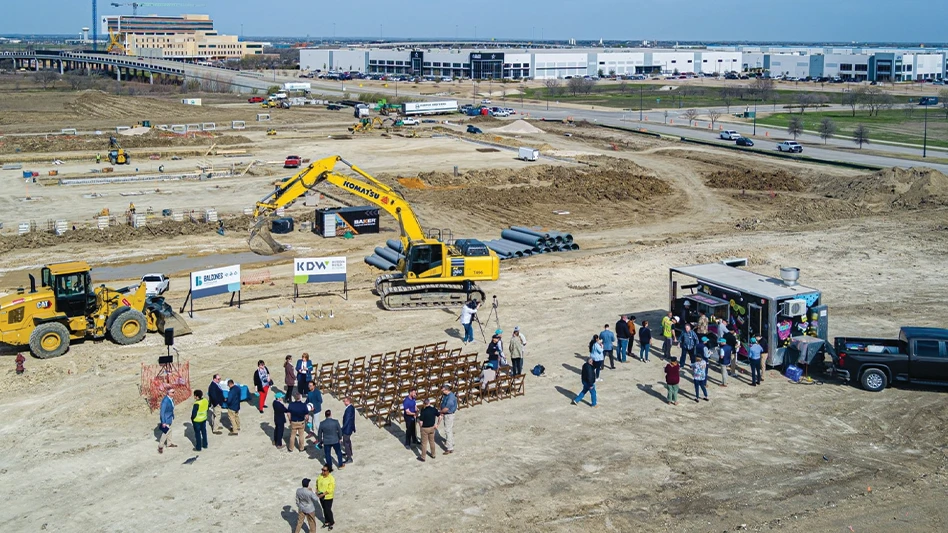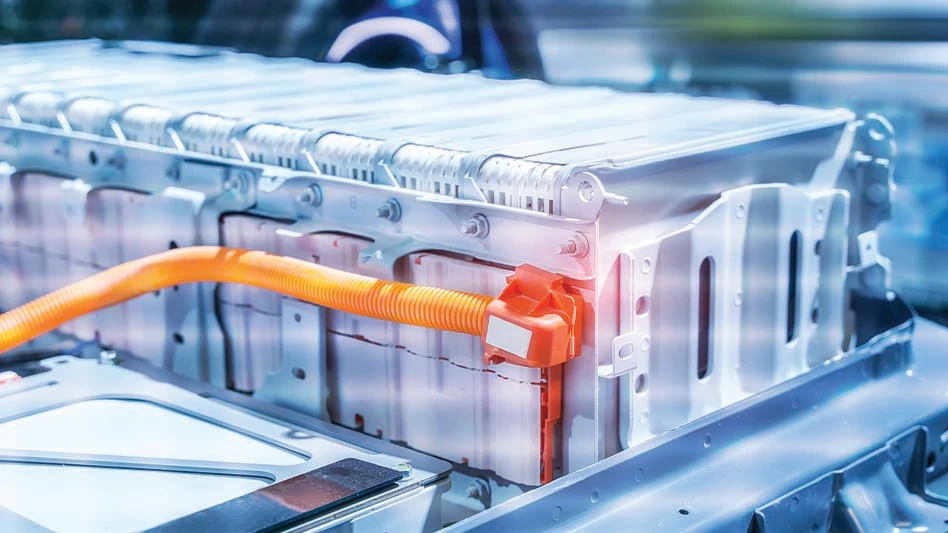Nucor Acquires Florida Scrap Metal Recycler
Nucor Corp., Charlotte, N.C., has announced that its wholly owned subsidiary, The David J. Joseph Co. (DJJ), based in Cincinnati, has acquired the assets and business of Ocala Recycling LLC, Ocala, Fla., currently a subsidiary of Blaze Metals LLC.
Ocala Recycling operates four facilities in Ocala, including one automobile shredder. Ocala’s combined production totals more than 100,000 tons per year.
Ocala will operate as part of Trademark Metals Recycling LLC.
This acquisition represents another step in Nucor’s previously announced plan to use DJJ as a platform for continued growth in the scrap processing industry and, specifically, Trademark Metals Recycling’s plan to expand in North/Central Florida.
Since DJJ became part of Nucor two years ago, it has added about 1.1 million tons of scrap processing capacity and 27 locations through five acquisitions and opened two greenfield yards.
The steel consulting group Steel Market Intelligence, Austria, notes, “We view this otherwise tiny transaction as holding far more importance because it’s the first deal the company has announced since September 2008—and we’ve been saying the past few months that we’ve sensed a thaw—and small deals precede bigger deals.”
Kansas City Tightens Rules for Scrap Dealers
On March 9, the Wichita (Kansas) City Council voted 6-0 in favor of an ordinance that aims to significantly reduce the theft of scrap metal in the city.
In 2007, the Kansas Legislature passed legislation regulating scrap metal dealers. Wichita incorporated many of the policies, adding additional features to tighten the rules.
City officials say previous ordinances pertaining to scrap metal dealers are antiquated and do not contain sufficient transaction requirements.
The tighter ordinance updates definitions and strengthen procedures that scrap dealers need to enact to operate in the city, according to officials.
Features of the newest scrap metal ordinance are:
• Requiring separate business licenses for each scrap metal business;
• Adding clarity regarding suspension and revocation of licenses for scrap metal dealers;
• Requiring detailed record-keeping procedures for scrap dealers;
• Limiting cash transactions when purchasing scrap metals; and
• Describing property “hold” procedures for scrap metal dealers.
In addition to an annual license fee of $400, the chief of police, with the approval of the city treasurer, may assess an application fee to each recycler not to exceed $60 to recover costs associated with background checks performed by the police department.
Sims Metal Management Numbers Amongthe Most Sustainable Businesses
Sims Metal Management, based in Australia and Chicago, has been listed as one of the Global 100 Most Sustainable Corporations in the World for the second year in a row by the publication that compiles the list. The company secured the 73rd spot in the ranking.
Toronto-based publication Corporate Knights, which describes itself as “The Magazine for Clean Capitalism,” announced the second version of its list at the 2010 World Economic Forum in Davos, Switzerland, in February 2010.
Companies were ranked on factors such as direct and indirect energy consumption, total carbon dioxide and equivalent emissions, total amount of water used and the total amount of waste generated.
The Global 100 Most Sustainable Corporations list is designed to identify companies that “consistently demonstrate superior leadership and performance on a range of environmental, social and governance policies relative to their industry peers,” according to a news release from Sims Metal Management. “Companies on the list are considered better equipped than their competitors to thrive and succeed in the longer term due to the sustainable approach used to manage their business,” according to the news release.
“Sims Metal Management’s inclusion is testimony to the company’s commitment to, and effective management of, the societal, environmental and governance factors impacting our business,” says Sims CEO Dan Dienst. “Doing good and doing well are not mutually exclusive propositions at Sims Metal Management.”
The company is the world’s largest electronics and scrap metal recycler.
CMC Reports First Quarter Loss
Commercial Metals Co. (CMC), Irving, Texas, has reported a net loss of $31.2 million on net sales of $1.4 billion for the quarter ended Nov. 30, 2009. This compares with net earnings of $62 million on net sales of $2.4 billion for the first quarter fiscal 2009.
Murray McClean, CMC chairman, president and CEO, says, “In a period of uneven global economic recovery, our end-use markets ranged from weak to improving. We believe the worst of the economic crisis is behind us, yet the prospects for better days will be delayed by the traditionally weak winter season encompassing our second quarter. Real sustainable domestic increases in demand were not apparent, and there was no discernable stimulus effect.”
McClean notes that ferrous scrap pricing declined during the quarter, before experiencing a recovery late in the quarter. “Export demand for U.S. origin ferrous scrap reduced during the quarter, leaving domestic mills with greater access to supply and price reductions,” he says. “Nonferrous pricing was on the whole steady for the quarter; both ferrous and nonferrous average pricing and margins increased over last year’s first quarter, which witnessed the beginning of the economic crisis for steel. Ferrous volumes increased over the prior year first quarter; nonferrous volumes were flat. For both ferrous and nonferrous, margin dollars gained almost exclusively due to better pricing than volume.”
In looking forward, McClean says ferrous scrap prices are strengthening in anticipation of a stronger economy. “Domestic stimulus programs may finally be evidenced by spring,” he says. “Coupled with an improving economy, the second half of our fiscal year appears more promising, though we believe at modest levels.”
Western Metals Recycling PlansNew Facility in Albuquerque
Western Metals Recycling LLC (WMR), headquartered in Sandy, Utah, has announced plans to open a new scrap metal recycling plant in Albuquerque, N.M., adjacent to its sister company’s used auto parts retail store, U-Pull-&-Pay (UPAP). The WMR facility will use a portion of the UPAP property, which comprises more than 50 acres in unincorporated Bernalillo County.
WMR and UPAP are wholly owned by The David J. Joseph Company (DJJ), a Cincinnati-based subsidiary of Nucor Corp.
WMR says it has a two-part plan for the Albuquerque location. The first phase includes a scrap metal recycling plant, scheduled to be opened by early this summer, pending all appropriate permits, licenses and required improvements. At the facility, WMR will purchase ferrous and nonferrous scrap metal items, which may include appliances, sheet metal, automobiles, aluminum cans and other aluminum, copper and brass products.
All metals purchased will be sorted and then transferred off site for processing. This phase will require a staff of five to 10 full-time employees, pending market conditions.
The second phase of the project will include the installation of a 4,000-horsepower auto shredder. The expansion plan is consistent with The DJJ strategy of strengthening its existing footprint in the scrap processing industry, and takes advantage of vertical integration within the company and the ancillary benefits of being located adjacent to the UPAP store, according to a press release issued by the company.
Camden Iron & Metal Seeks to Relocate Shredder Operation
Camden, N.J.-based Camden Iron & Metal, which was acquired by U.K.-based EMR Ltd. several years ago, is looking to relocate its auto shredding operation from Philadelphia to Eddystone, Pa. The company has cited its wish to consolidate its shredding/processing operations and shipping business into one location as a key reason for its interest in relocating.
Various published reports note that the company has an option on a collection of seven buildings in an industrial part of Eddystone. If the company is able to obtain the proper permitting to open at this site, Camden Iron & Metal would be able to move its shredding operations to an indoor facility, which should help to alleviate any noise concerns.
The potential site includes rail access and also would allow the company to load material on barges. Camden Iron & Metal also says that it will look to build a 400-foot long, 100-foot wide pier that would allow the company to load as many as 30 vessels per year.
According to an article in the Philadelphia Inquirer, the company already has purchased an auto shredder for a new site, though the equipment is presently being stored until the company is able to find a suitable location. Once the company locates and purchases a site, Camden Iron & Metal says it expects to have the shredder installed at the location within one year.
The Inquirer notes that the company has spent nearly $12 million, excluding the cost of the auto shredder, in its search for a new location.
While the company has been seeking to relocate, residents of Eddystone have been going through public hearings about the benefits and drawbacks of the facility.
According to the Philadelphia Inquirer, a representative from Camden Iron & Metal says a portion of the stormwater at the site would be reused to process the material and that there would be no emissions from the facility.
Proposed Shredder Project in Arizona Receives Go Ahead
Southwest Metals, which has been seeking to build and operate an auto shredder in Casa Grande, Ariz., has received approval from the Casa Grande City Council in a 6-1 decision March 1. The decision followed an extensive debate that took place throughout the last several years, with opponents of the proposed shredder, including a neighboring business, filing appeals with various agencies in opposition to the project.
The city council vote was an affirmation of an approval made by the city’s planning and zoning board several months ago. The auto shredder facility is on slightly more than 16 acres and is zoned for heavy industry. However, the facility was required to obtain a conditional use permit to operate the shredder.
A representative from Casa Grande notes that the auto shredder is not a mega shredder. Other scrap recycling firms have encountered resistance from residents in parts of the country when trying to install mega shredders.
While the Case Grande City Council approved the plan, the company must comply with a number of requirements before it can open the auto shredder, including the erection of a berm and designing a traffic flow pattern that ensures that truck traffic will not idle on city streets.
Southwest Metals contends that it will constantly monitor the site, which will meet all county and state air-quality standards, the company says. Opponents say the very fact that the shredder would be so heavily regulated is proof that it is dangerous and doesn’t belong here.
According to local press reports, Kay Bigelow, an attorney representing Southwest Metals, told the city council that the air quality permit requires facility inspections and stipulates that particles cannot be allowed to escape from the site.
Get curated news on YOUR industry.
Enter your email to receive our newsletters.

Explore the April 2010 Issue
Check out more from this issue and find your next story to read.
Latest from Recycling Today
- Hydro to add wire rod casthouse in Norway
- Hindalco to invest in copper, aluminum business in India
- Recycled steel price crosses $500 per ton threshold
- Smithers report looks at PCR plastic’s near-term prospects
- Plastics association quantifies US-EU trade dispute impacts
- Nucor expects slimmer profits in early 2025
- CP Group announces new senior vice president
- APR publishes Design Guide in French






